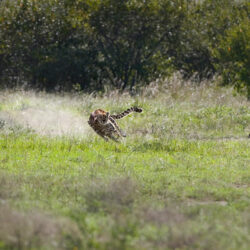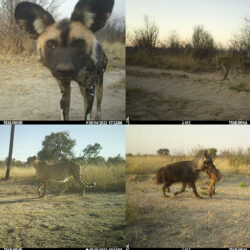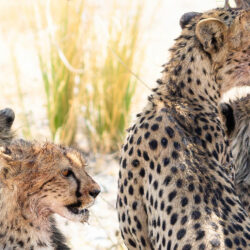Scat Detection in Angola Project
-
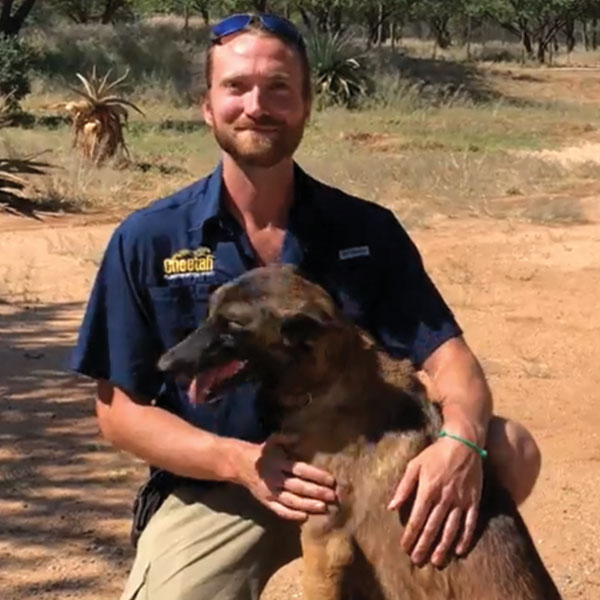
- by Tim Hofmann January 27, 2022
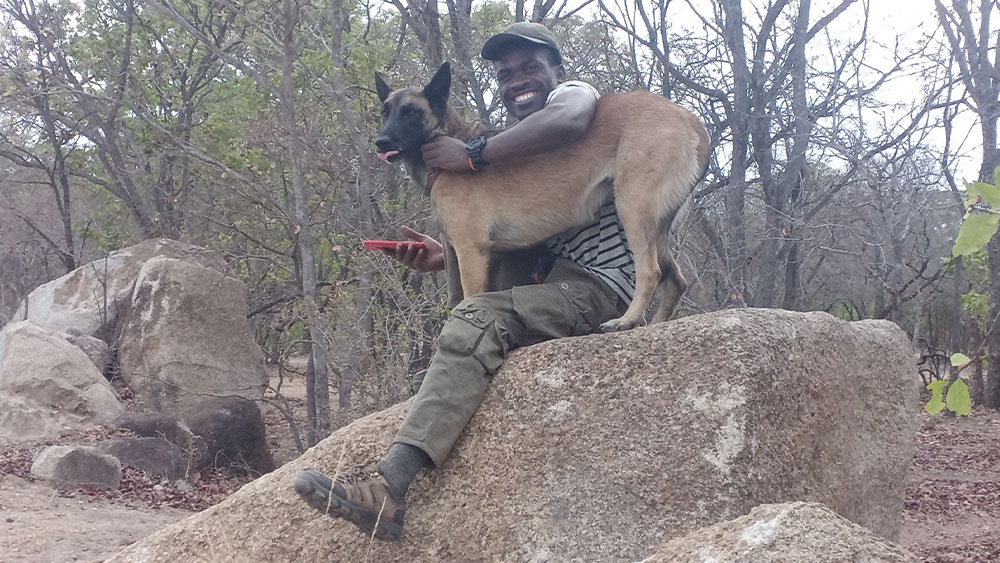
After a long break due to the covid-19 pandemic, Enya and I were very excited to finally continue our work in Angola. Travel restrictions for the team members from Portugal, Angola and Namibia were eased and the reported case numbers were so moderate that we decided to do the trip. After some weeks of preparation Enya and I headed to the Namibian/Angolan border. After successfully crossing on the Namibian side, we found ourselves in front of closed gates. The border staff assured us that we could only pass with more paperwork as the border was, again, officially closed to reduce the spread of covid-19. While being fully supportive of any measures to fight the pandemic, we were still frustrated to be stopped so close to our destination.
Now being stuck in between two countries we found us very lucky that the border staff helped us to easily enter Namibia again. We weren’t ready to give up yet so Enya and I tried to find a hotel in the small border town Nkurenkuru while our colleagues tried to get information when the border would open again. Since it is not common to share a hotel room with a dog in Namibia, we found us very fortunate to find a place that would accommodate us. Luckily Enya is very easy going and won over all staff with her friendly personality very quickly. The town is just by the Cubango River, which later feeds into the Okavango delta. Spending most of my time in Namibia’s semi-arid regions; it is always an incredible experience to see this river with its green banks and large trees.
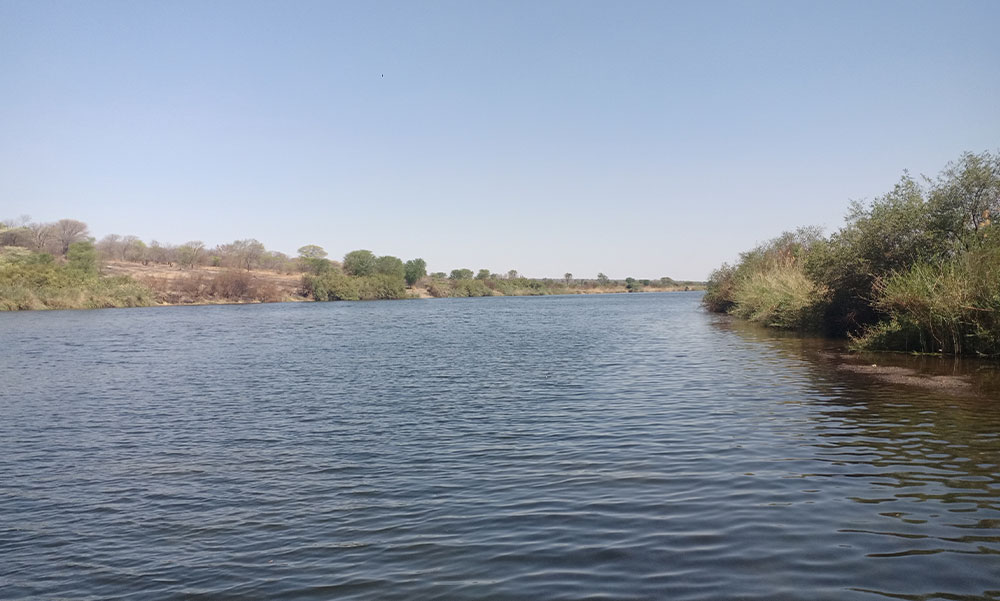
After 4 days of waiting we decided that we had to once again cancel our trip, which was very disappointing for all of us not only because of the time that we had already invested but also because coming home without having our job done and of course not having seen the land we have been working in for 3 years now, is not satisfying.
Therefore I was even more excited when we were planning to try again in October. Crossing the border is always exciting as we never know what to expect especially since I am travelling with a dog. Surprisingly it wasn’t a problem at all and we crossed to Angola in record time. United with our Angolan and Portuguese colleagues I was very happy to drive the 5 hours to the city of Lubango and enjoy the incredible scenery.
We arrived very late and on arrival heard from one of our partners, once again, that we will be stuck here for some days due to travel delays caused by the pandemic. Luckily Enya and I were used to this now and almost enjoyed the days with computer work and visiting local markets and other preparations for the field. Nevertheless we were very happy when we finally headed out to Cuatir Private Game Reserve.
October is the hottest time of the year in Angola as is it just before the rains start which are cooling down the air. This is good because it means that the dung beetles and the rain didn’t remove the scats yet, which gives us the chance to collect samples that are potentially several months old but this also means that we have to be in the field with the first light of the day to get at least two hours where the heat is bearable and Enya can perform at her best. We are forced to work past this point to manage our packed schedule but we will find less the hotter it gets to Enya tiring out. Getting up at 3.30 every day is exhausting but not being able to rest during the day because the heat doesn’t allow sleeping is what makes it tough.
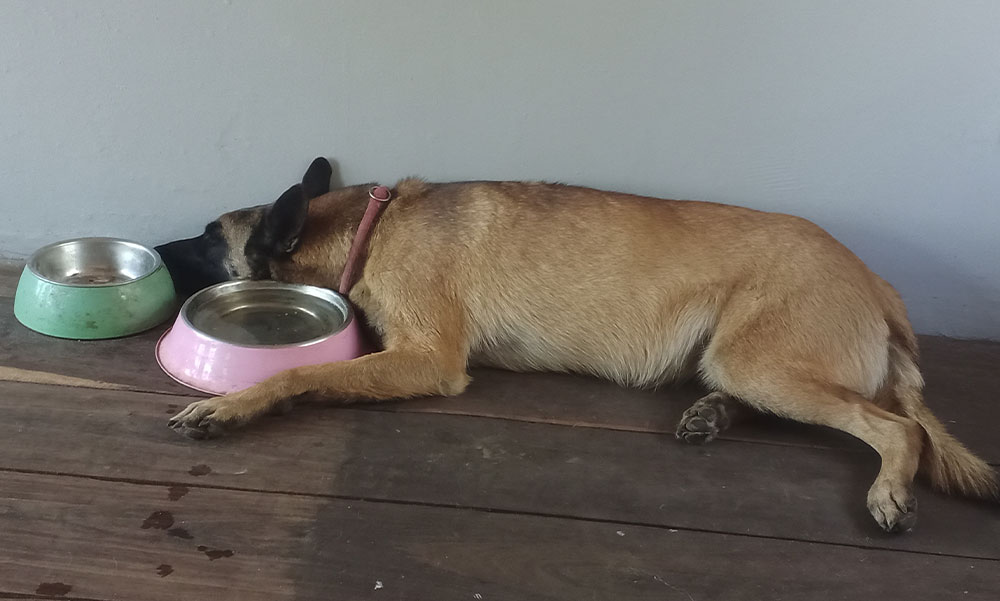

Seeing Enya passed out next to her lunch is heart-breaking but I only need to get up and she is on her feet ready to work. Luckily Enya and I have been working together for many years now and we know when one of us needs a break. It helps set up transects so that they end at or pass by waterholes for her to cool down. Seeing her joy when jumping in the water is beautiful but even more frustrating for us when I have to restrain her from some waters where crocodiles are a potential danger for her.
There are countless moments that are very special and make me appreciate the chance to work in such a remote and wild location that I can’t write about them all but I would like to share two stories that creating long lasting memories. One night Enya woke me up with the gentlest and quietest bark that I have ever heard from her, it basically sounded like ‘hey you should really wake up but be quiet’. I immediately heard that something was outside our open windows and I opened the curtain. Since it was full moon I expected a clear view on whatever it was and it took me by surprise that it was pitch dark but a second later I realised that my view was simply blocked by an elephant that was just outside our window having a wee, which explained the sound of, well, flowing water.
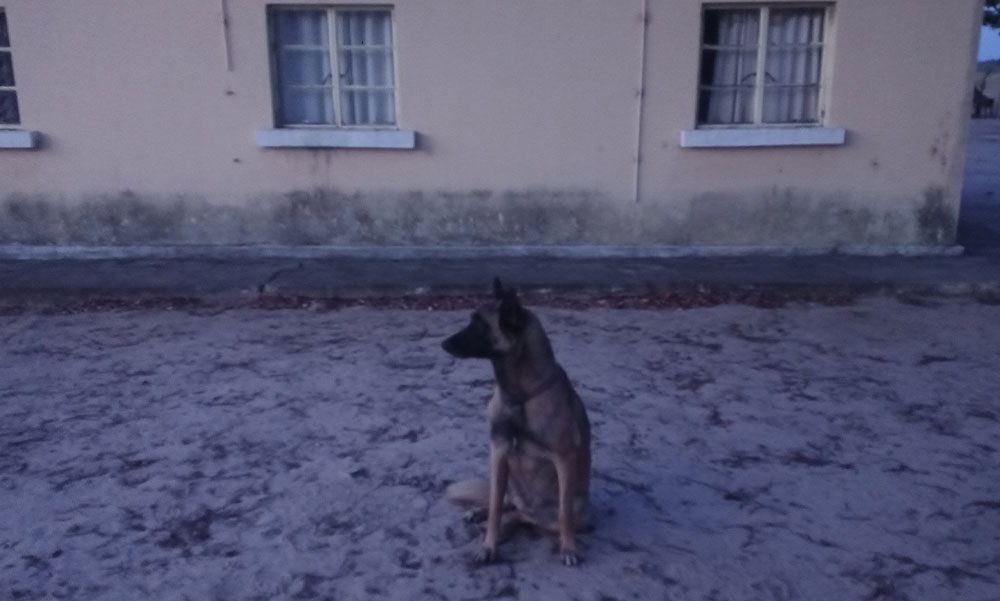
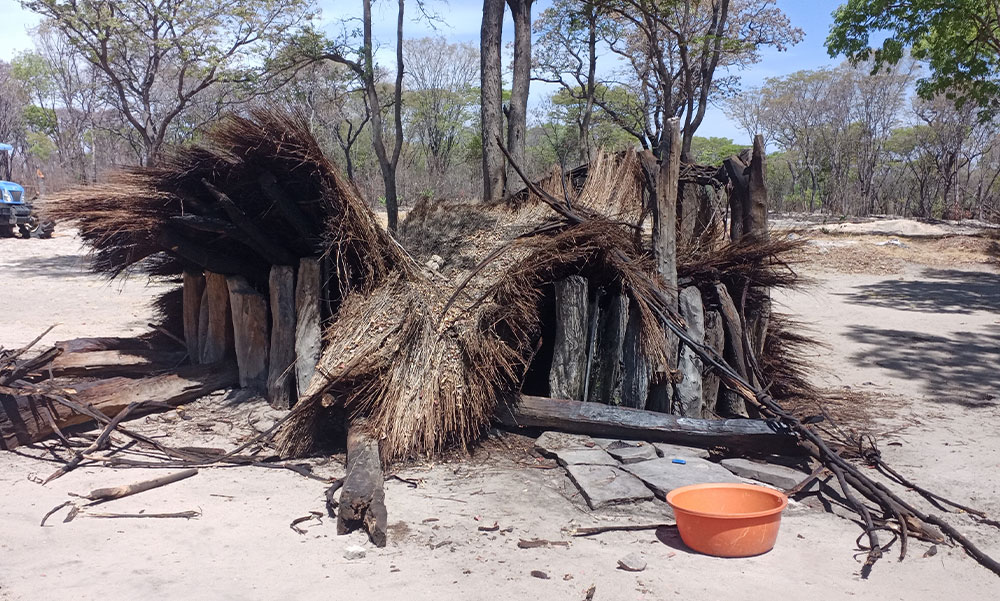
Enya and I sat under my sleeping bag and watched him for some minutes destroying the trees in our camp before we went back to sleep. It is those moments that feel so special not only because it is so close but also because it is only me, my dog and this majestic animal sharing a moment, of which the elephant surely cared least about. The next morning I had to find out that he was on the way to completely destroy our kitchen hut and I felt a little bad for my private encounter while everyone else only got to experience cold breakfast.
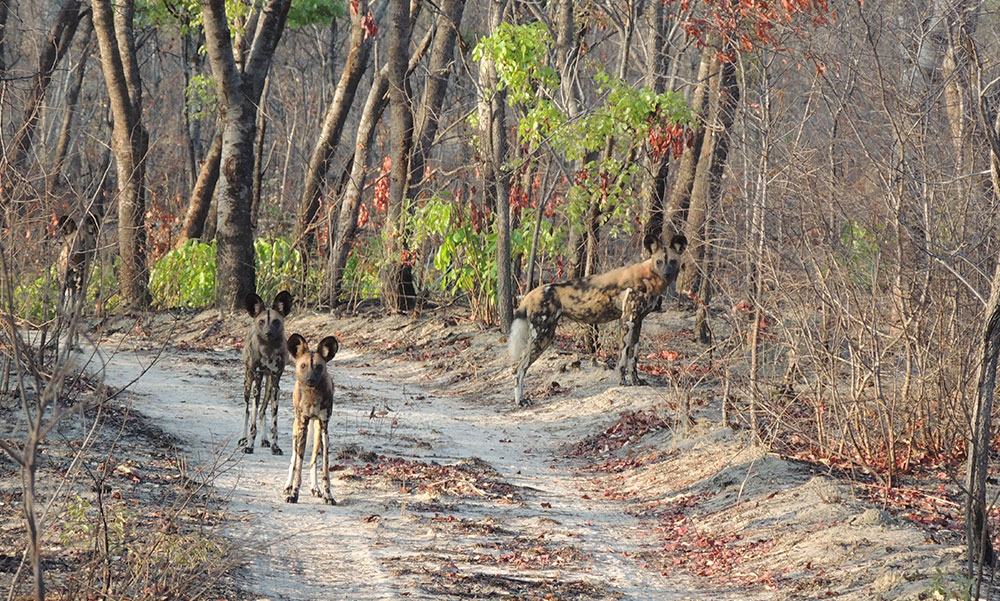
On another day we were just about to start our morning transect when we came across a large pack of African wild dogs. This was incredible special for me as I had seen them in the wild only once about 15 years ago and had been trying to find their scat with Enya for some time now. Realising our transect would start only some 200 m further down the road made our ranger a little nervous. Enya however was completely cool, during the sighting and on the transect but I have to admit that by the end of the morning the ranger and I had a sore neck from looking over our shoulder. A few days later the same team was on the opposite of a little valley from where we saw the dogs earlier. While we were busy collecting scats from a hyaena latrine, I realised Enya’s ears being up and her body seemed alert while she was looking into the valley. Following her eyes I saw the same pack of dogs moving through towards us.
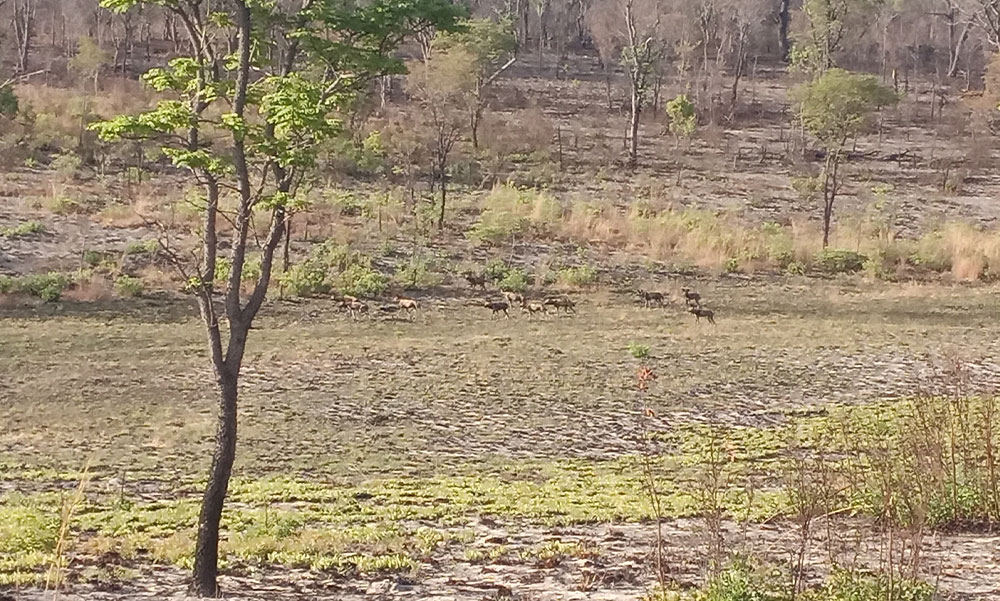
Once again I can only say how incredibly proud I am of Enya who waited patiently next to me, remaining completely calm while keeping her eyes on the dogs. The situation was never dangerous as the dogs saw us early and were simply curious as they are not used to people a lot in their park. They came up to 50 m towards us, looked and sniffed intensely and then moved on. It is always special to meet animals on foot and especially when it is something so rare like African wild dogs.
This year was our most successful trip and we more than doubled the numbers of scat we found. While the amount of scat is important, the quality of Enya’s performance is at least equally crucial for me. I was extremely happy that Enya performed well and even indicated scat by sitting next to it in both study areas (Picture 8).
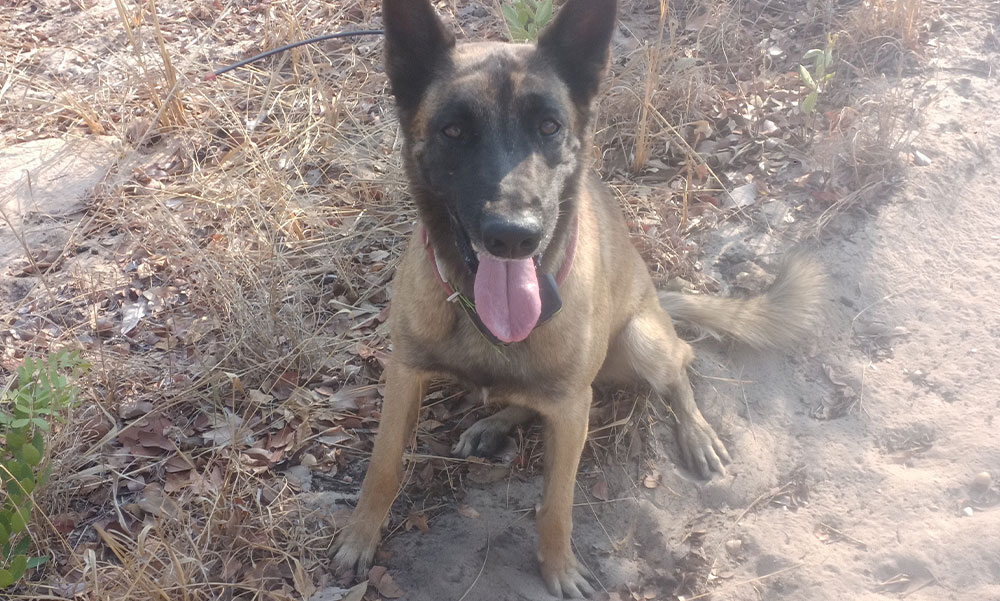
This means that our main target species cheetah and African wild dog were most likely detected by our team. Indicating samples so far away from our regular training ground on CCF land is difficult because the samples will likely have a different scent as the donor animals potentially have a different diet and belong to different populations. The ability to still match the scats to the right species is called generalising and I am very proud to see that Enya and my training paid off.
Related Reading
-
October 15, 2024
The Ecology of the Landscape Down to the Smallest Part

